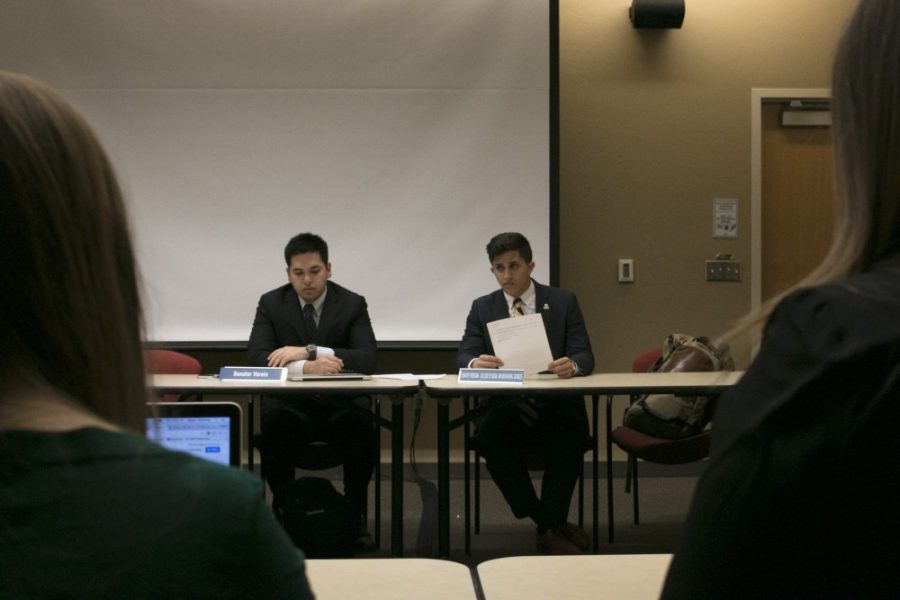The Associated Students of the University of Arizona are working with Campus Health Services and other UA organizations to raise awareness about the new meningitis B vaccine.
The program, called Vax-12, is a coalition of Pac-12 student government organizations working together to combat the disease on college campuses.
Christine Hall, a representative of the ASUA Student Health Advocacy Committee, has been planning for a campaign at the UA to spread awareness about meningitis B and inform students about their new vaccination options.
RELATED: ASUA Senate talks meningitis B, support for SB1061
“We’re very lucky now that we have this vaccination,” Christine said. “We’re trying to stop an outbreak from happening at the UA and advocate for students to make healthy choices about vaccination schedules.”
There have been five outbreaks of meningitis B on U.S. college campuses in the last four years, resulting in two deaths and cases of brain damage and amputation. However, thanks to large-scale vaccination efforts, the outbreaks were not as severe as they could have been.
According to the Centers for Disease Control and Prevention, young adults have some of the highest rates of meningitis and are particularly susceptible to meningitis B.
UA Health Promotion and Preventive Services Director David Salafsky said, while meningitis isn’t typically spread through casual contact, those who live in close quarters such as a residence hall or greek house are at higher risk. Salafsky also added that, since it is spread through saliva, meningitis is spread easiest between people who are kissing or sharing things like food, drinks and smoking materials.
Students can also reduce their risk of contracting meningitis by abstaining from activities that would expose them to other people’s saliva, like sharing food and drinks.
“The good news is that we have vaccines that really can help reduce students’ risks,” Salafsky said. “Students can come in Monday through Friday to our travel and immunization clinic to get the vaccine, and chances are their insurance is going to pay for it.”
RELATED: UA immunologist answers questions on why you should get the flu vaccination
Until 2014, the only meningitis vaccines available protected against meningitis A, C, W and Y. It wasn’t until recently that vaccines became available for meningitis B.
This means even if students were vaccinated for meningitis as children they’re still unprotected against meningitis B and need to get the new vaccine.
Meningitis can leave victims with loss of vision, brain damage, limb amputation and other complications. Stephen Scholand, an infectious disease practitioner at Banner-University Medical Center, stressed the importance of vaccine education.
“It is the 21st century but, even with all our advanced care, there’s still a 10 percent chance that if you get meningitis you’re going to die no matter what antibiotics or advanced treatment you get,” Scholand said.
Students can call the Campus Health Center’s Travel Clinic at (520) 621-9202 to schedule an appointment for vaccination.
Follow Henry Carson on Twitter.









